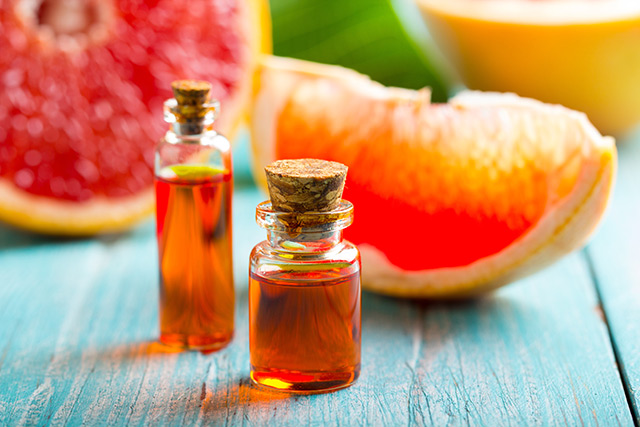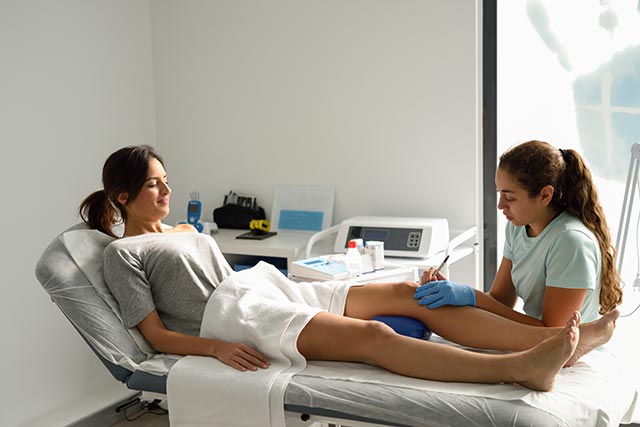Eat these foods to protect the skin from sun damage
06/24/2020 / By Divina Ramirez

People tend to spend more time outside during the hot summer months, and this isn’t necessarily a bad thing. The skin needs sunlight to produce vitamin D, an essential micronutrient that helps maintain optimal immunity and bone health.
But there is such a thing as too much sun. Repeated exposure to radiation from the intense heat of the sun can lead to sun damage in the form of loose skin, fine lines and dark spots. If the damage continues to build, the skin might also become more susceptible to skin cancer.
Most people use topical sunscreens to fight sun damage, but these products often contain chemicals that are harmful to both the skin and ocean life. The chemical ingredient oxybenzone, for instance, has been linked to potential health and environmental concerns.
Top foods for sun protection
Healthcare professionals maintain that certain foods can be just as potent as topical sunscreens in protecting the skin from sun damage. Plus, most foods that protect against sun damage also help maintain optimal skin health. Here are some of them:
Watermelon
This go-to poolside snack is a great source of sun-shielding lycopene, an antioxidant that also helps reduce redness and fights against skin aging. Besides lycopene, this tropical fruit also contains ample amounts of vitamin C, an essential micronutrient that has been found to fight the effects of ultraviolet (UV) radiation.
Tomatoes
Eating tomatoes can also help protect against sun damage because of the fruit’s high lycopene content. In fact, a 2001 study published in The Journal of Nutrition found that tomatoes can shield the skin from UV-light induced erythema or skin reddening. Lycopene has also been found to combat DNA damage, a major precursor to cancer.
Guava
Guava is considered one of the most potent sun-protecting foods because of its rich vitamin C and lycopene content. In fact, a 100-gram serving of guava contains four times the amount of vitamin C found in an orange.
Blueberries
This summer fruit is one of the richest sources of antioxidants that help fight free radical damage due to UV radiation. Antioxidants also protect the skin from cellular damage that can trigger premature aging. Plus, blueberries are rich in vitamin C.
Carrots
Beta-carotene, the red-orange pigment behind the carrot’s distinct appearance, also doubles as a potent antioxidant. Carrots also contain incredible amounts of lycopene and vitamin C. Together, these three compounds protect the skin from sun damage.
Leafy greens
Leafy greens, such as spinach, lettuce and kale, are great sources of the antioxidants called lutein and zeaxanthin. Besides supporting eye health, these antioxidants also maintain skin elasticity and protect against harmful UV radiation.
Green tea
Green tea is abundant in phenolic compounds that act as antioxidants. In particular, an antioxidant called epigallocatechin-3-gallate (EGCG) has been found to protect against the harmful effects of UV radiation. (Related: Top 5 health benefits of green tea.)
Cruciferous vegetables
Cruciferous vegetables, such as broccoli, cabbage and bok choy, contain an organic, sulfur-rich compound called sulforaphane that helps protect against UV radiation. Cauliflower, in particular, is also a great source of histidine, an essential amino acid. Histidine helps stimulate the production of urocanic acid that helps absorb UV radiation.
Fatty fish
Eating fatty fish like salmon, tuna and herring can bolster the skin’s natural defenses against sun damage. One reason for this is that the omega-3 fatty acids in these fishes help boost skin immunity to sunlight. Omega-3s also help maintain optimal skin health.
Nuts and seeds
Almonds, flaxseeds and chia seeds are great plant-based sources of omega-3 fatty acids that guard against sunburn. Nuts and seeds are also rich in vitamin E, an antioxidant that not only protects against sun damage but also moisturizes the skin to keep it radiant.
Too much sun can lead to skin cancer. Besides eating foods that help fight sun damage, simply staying out of the sun during the hottest hours of the day should help keep sun damage at bay. Hats, sunglasses and umbrellas also come in handy during the summer.
Read more articles about the best foods for skin health at FoodIsMedicine.com.
Sources include:
Tagged Under: alternative medicine, anti-aging, antioxidants, disease treatments, food cures, food is medicine, functional food, natural cures, natural ingredients, natural medicine, nutrients, nutrition, organics, prevention, skin care, skin health
RECENT NEWS & ARTICLES
COPYRIGHT © 2017 PREVENTION NEWS



















